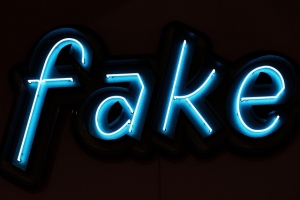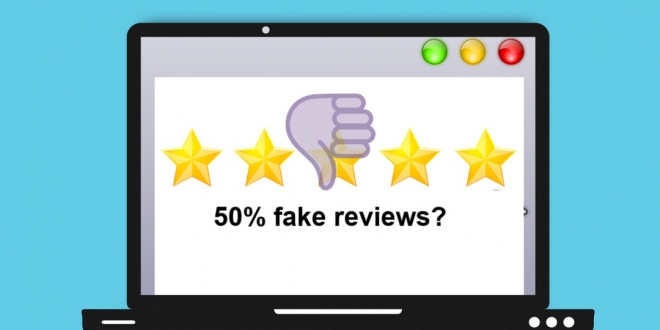In Amazon we trust. Many online buyers check Amazon and other online product reviews and prices before purchasing online. Understandable, but are we being faked out by fake product reviews?
Here are a few quick facts from G2 about how important consumers think reviews are:

- Nearly 95% of shoppers read online reviews before making a purchase (Spiegel Research Center, 2017)
- 94% of customers read online reviews (Fan and Fuel, 2016)
- 93% of local consumers use reviews to determine if a local business is good or bad (BrightLocal, 2017)
- 72% of customers don’t take action until they have read reviews (Testimonial Engine)
Despite consumers’ acceptance of the value of reviews, questions persist about how many reviews of Amazon products are actually fake.
The new edition of German magazine Das Bild was told by a worker at a “reputation agency” that more than half of Amazon reviews are fake. The reputation company is paid by manufacturers to generate positive product interviews using a mixture of free products and payments for positive reviews.

In fact, there’s a whole industry operating on the edges of online shopping that sell or enable phony product reviews for a price. For example, at TesterJob freelancers can sign up to write reviews in return for free products or a fee and the site claims to have more than active 60,000 reviewers. A Reddit list highlights 32 agencies in the UK alone that pay for reviews.
Imagine the impact when your new product suddenly gets hundreds of positive reviews on Amazon to help you break through its 1.8 million sellers with more than 600 million products selling on the world’s biggest online marketplace.
Consumers trust online reviews
Pew Research shows a majority of US consumers check online reviews before buying a product for the first time. “Fully 82% of US adults say they at least sometimes read online customer ratings or reviews before purchasing items for the first time, including 40% who say they always or almost always do so,” Pew reports.

Pew also notes two-thirds (67%) of weekly online shoppers say they nearly always read customer reviews before buying new items and 55% of US adults say they have watched product review videos online. The numbers are even higher with younger consumers.
While 51% of consumers trust online reviews according to Pew, 48% say it is often hard to tell if online reviews are truthful and unbiased.
Interestingly, 54% of Americans who read online reviews indicate they pay more attention to extremely negative reviews when trying to make decisions, while 43% pay more attention to extremely positive ones.
Amazon battles fake reviews
You can see why there’s a big payback for companies in getting positive reviews on Amazon and elsewhere. With those more than 1.8 million Amazon sellers, it’s hardly surprising sellers and manufacturers are targeted by these so-called “reputation management” companies.

Amazon claims fewer than 1% of its reviews are not “authentic” and says it actively polices reviews to ensure their accuracy and has actively sued more than 1,000 companies for fake reviews. But with 9.6 million new reviews every month, it’s easy to see how reviews can be manipulated despite the company’s best efforts.
Outside audit companies like Fakespot and Reviewmeta allow consumers to check reviews for trustworthiness. Fakespot claims fake reviews may be as high as 50% in some Amazon product categories like headphones.
Reviewmeta recently reported that in March 2019 alone, Amazon received more than two million unverified product reviews of which 99.6% were five-star reviews.
YouTube, private Facebook groups, Slack and other social media channels are also popular places for paid or fake reviews. And then there are the celebrity endorsers and influencers who get paid big dollars by companies and advertisers to promote products and services.

Renée DiResta, who researches disinformation online as director of research at New Knowledge, and is a Mozilla Fellow on media, misinformation, and trust says fake reviews are a constant battle. “Being on the first page of Amazon is profoundly impactful for businesses,” DiResta says. “Doing well on Amazon really makes or breaks brands,” she told NPR.
Many of the fake reviews are purchased by Chinese companies looking to break into the US market via Amazon instead of Alibaba, which can have shipping time frames to the US of up to two months.
The recent questions raised about phony online reviews are a timely reminder to consumers and legitimate businesses that we need to make sure we’re not faked out by fake reviews.
When you think back to the heydays of print newspapers, paid and fake reviews online are really old news all over again.

